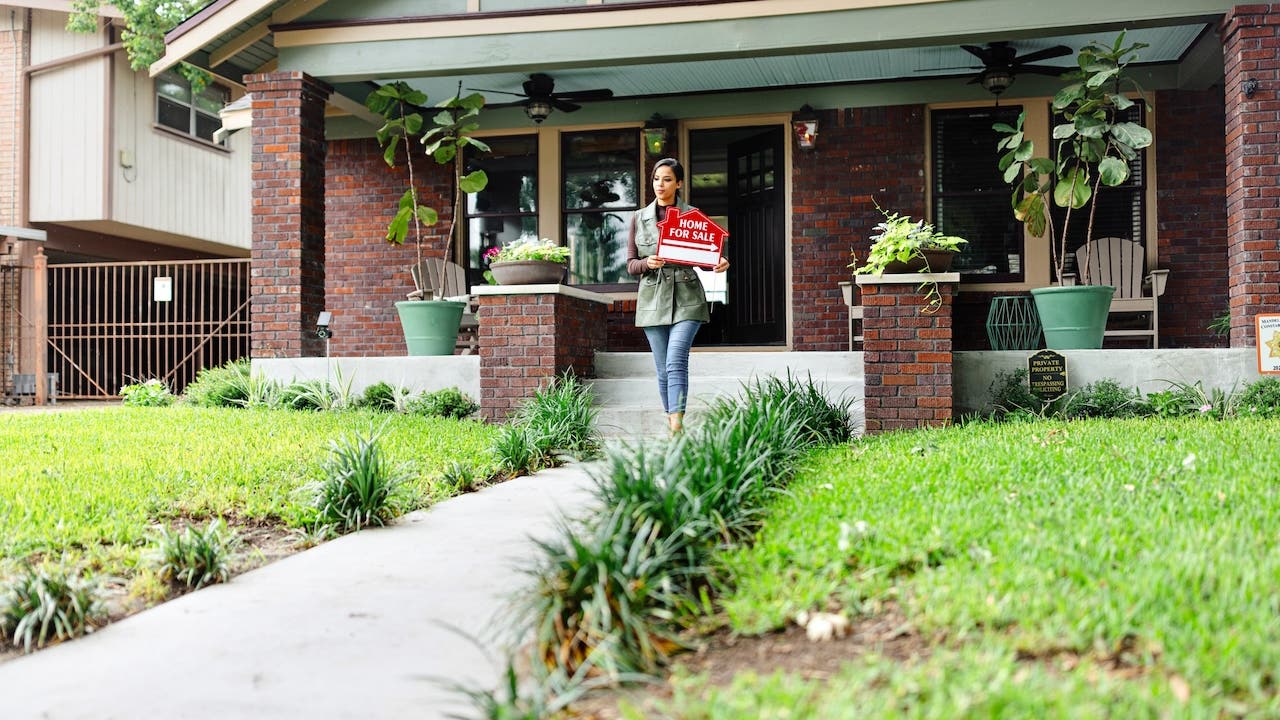Closing costs in Kentucky: Who pays for what?

If you’re gearing up to buy or sell a home, you’ve likely started thinking about how much money you’ll need to bring to the closing table. Closing costs vary widely depending on the home’s value, but also on where the home is located, so understanding how your property’s location plays into this total can help you prepare financially.
In the Bluegrass State, as in any other, buyers and sellers share closing costs to some degree. But there are a few state-specific quirks you’ll want to consider. Here’s more about who pays closing costs in Kentucky.
How much are closing costs in Kentucky?
Closing costs in Kentucky average 1.4 percent of a home’s sale price (not including Realtor fees), according to data from ClosingCorp. This is right in line with its southern neighbor, Tennessee, which also averages 1.4 percent, and lower than Ohio’s 2.0 percent to the north.
So how much does that equate to? The median sale price of a home in Kentucky was $277,000 as of October 2024, according to market data from Bluegrass Realtors. So 1.4 percent of that would mean $3,878 in closing costs on a median-priced sale.
Keep in mind, though, that prices can be very different depending on exactly where in Kentucky you’re located. For example in Jefferson county, where Louisville is located, the median price in October was higher at $350,000, which would result in closing costs of $4,900.
Who pays closing costs in Kentucky, buyers or sellers?
Both buyers and sellers will have some form of closing costs to cover, in Kentucky as in every state. For homebuyers who are financing the purchase, lender fees will make up a substantial chunk of their costs. And sellers have their own set of fees to cover.
In addition, there are costs due at closing that may be applicable to both parties: One is real estate agent commissions, which may be paid individually or both by the seller, depending on the details of the deal. Another is legal fees: Kentucky law requires that an attorney be present to handle all residential real estate closings. Either party may also hire an attorney to represent their own interests in the deal.
Beyond that, here’s a breakdown of who typically pays for what in a Kentucky real estate deal:
Common closing costs for buyers
-
Loan-related fees: When you finance your home purchase with a mortgage, the mortgage lender typically charges a variety of fees throughout the process for things like application, underwriting, loan origination and more. They will likely also charge to check your credit.
-
Mortgage points: If you choose to “buy down” your mortgage rate by purchasing mortgage discount points, that cost will be due at closing as well.
-
Home appraisal: A professional home appraisal is usually required by mortgage lenders, as a safety measure to ensure that they’re not lending you more than the home is worth. An appraisal usually costs a few hundred dollars and will be charged to the borrower.
-
Home inspection: A home inspection, which is not required but is always a good idea to get, will cost another few hundred dollars. If any issues are found, the buyer may be able to negotiate for the seller to pay the cost of repairs.
-
Title-related fees: Your lender will likely conduct a title search of the property to ensure there are not any liens or other issues. In addition, in Kentucky the buyer typically pays for title insurance policies for both the lender and themselves.
-
Prepaids: Buyers will often be required to prepay a certain amount of property taxes and homeowners insurance premiums. These funds, collected at closing before they are actually due to their respective payees, are usually held in escrow and distributed on your behalf as needed.
Common closing costs for sellers
-
Transfer taxes: Many states charge a transfer tax when property changes ownership; Kentucky is one of these states, with a rate of $0.50 per $500 in value. For example, a home costing $250,000 will yield a $250 transfer tax.
-
Property tax: Property taxes can vary significantly based on where in the state of Kentucky your property is located and are calculated based on the home’s assessed value. Home sellers will owe any applicable property tax right up until the deal closes and the ownership officially changes hands.
-
HOA fees: If the property is part of a homeowners association, the same is true for any applicable HOA fees — sellers owe the full amount due until closing day.
-
Seller concessions: It’s common for sellers to agree to cover part of the buyer’s costs, or pay for a needed repair, as a way to sweeten the deal. Any seller concessions are payable at closing.
-
Mortgage payoff: It’s also common for the home being sold to still have a mortgage on it. When this is the case, the amount due must be paid in full before the deal can be finalized; these funds often come directly out of the sale proceeds.
Lowering your closing costs in Kentucky
Understanding which closing costs are negotiable can help you lower your expenses. For one thing, Realtors are often open to negotiation on their commission fees, and a discount here can save you thousands. That’s especially true of higher-priced homes, as the commission is a percentage of the home’s sale price. Both parties can shop around for the best deals on services needed, too, such as home inspectors or attorneys.
Buyers in particular should be sure to shop around for the lender who can offer them the best mortgage rate and terms. Some lenders even offer no-closing-cost mortgages, though this option may not be right for everyone. And look into whether you qualify for any state, local or even federal financial programs that can help with down payments and closing costs. If you’re eligible, these programs can ease the burden of expenses at closing.
Find a local real estate agent
Working with an experienced local real estate agent is key in helping any transaction go as smoothly as possible. Look for someone who has experience and expertise in your particular area of Kentucky. If you’re not sure where to start, try asking friends, family and coworkers if they’ve worked with an area agent who they liked. Interviewing several candidates can help you narrow the field and find someone you’re comfortable with.
FAQs
Why we ask for feedback Your feedback helps us improve our content and services. It takes less than a minute to complete.
Your responses are anonymous and will only be used for improving our website.






